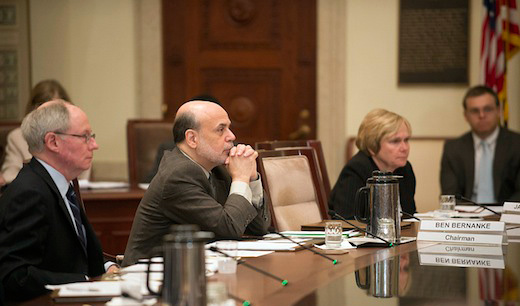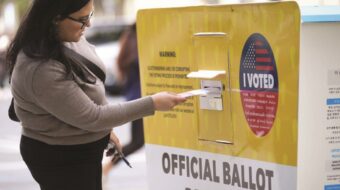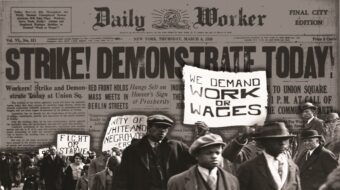
The annual, exclusive conference hosted by the Federal Reserve Bank of Kansas City in Jackson Hole, Wyo., is normally noted as a who’s who of global central banking. But this year the absences were bigger news than who was there. Especially noted absence was the Fed’s outgoing chair, Ben Bernanke. President Obama is considering Fed Vice Chair Janet Yellen and former Treasury Secretary Lawrence Summers (who was absent from the Wyoming meet also) to replace Bernanke when he steps down in January. (Sources say Summers has the inside track.)
The Jackson Hole conference attended by many of the world’s top economists, central bankers and policy makers (the intellectual political economy generals of finance capital) revealed divisions over current Fed stimulus policy. Faced with substantial political paralysis in Congress, where fiscal stimulus (taxing and spending – the recommended Keynesian remedy for fixing depressions) is next to impossible, Bernanke launched an “unconventional” monetary policy in order to stimulate the economy. Known as quantitative easing, or QE, the Fed purchases on a large-scale long-term assets and securities in the hope that flooding the market with long term paper (a form of money) will either draw down long-term interest rates, or, alternatively, inhibit deflation (aka stimulate inflation).
The goal, in plain English, was to get the rich and their hedge funds to take some money out of their pockets and put it back in the economy. Borrow long-term at near-zero interest, or inflation will inch up! That is the push-pull pressure of QE.
It’s not entirely clear if this tactic is working. It is a recovery still invisible to 7 percent of the workforce who are unemployed, another 7 percent who are underemployed, to another 10 percent who have given up looking for legal work, and to the generations of working people since Reagan who, except for a brief respite in 1997-98, have been either flat or losing money every year and especially the past seven years, which have been a terrible, downward slide for most workers and their families.
However, even Bernanke’s hint last month that “the appropriate time” for drawing down QE might be near, caused a mild panic and a sharp drop on Wall Street. That’s evidence, at least, of the fragility of the current “recovery,” and maybe a confirmation of the policy’s effects, of at least not making matters worse.
Policy heavyweights at Jackson Hole like Christine Lagarde, managing director of the International Monetary Fund, were mostly favorable to maintaining QE and used as evidence the reaction to Bernanke’s threat to end it. But academic economists of the austerity schools are doubtful about causal effects, even though that lends even more argument to the fragility of the recovery. They seem to be the private bankers’ lobby at the conference, but even they do not endorse pulling back the QE program “too soon.”
In sum – monetary policy is largely futile to fix depressions, except to possibly inhibit things from getting even worse – so we are sticking with it.
QE was a desperate move by the Fed to move the unemployment numbers because of Congress’s failure to act. Why Congress cannot act when useful public stimulus that matches the aggregate losses in demand is the exact and precise and best scientific remedy is a question driving even mainstream economists back towards Karl Marx and other heterodox economics for answers.
Because the U.S. financial system is so integrated with global and regional banking systems through many agreements and trade treaties, any major action by the U.S. central bank will also have far-reaching impacts on the finances of many nations.
Candidates for incoming chair, Yellen and Summers, have slightly different views, or emphasis, on QE. Yellen has focused more on its stabilizing effects, at least for now; Summers on its ultimate futility and the need to put pressure on Congress to do the fiscal side of stimulus.
The left voices in this debate, (they are not all united, but to name some names) Bernie Sanders, Elizabeth Warren, Joseph Stiglitz, Paul Krugman, were not heard from at Jackson Hole. Their position is, in effect, is to serve the public interest by taking an adversary position with respect to finance capitalists, and, by whatever means necessary, compel them to invest their hoards of gold.
Photo: Federal Reserve Chairman Ben Bernanke, center, listens during an open board meeting on Basel III, July 2, with Vice Chair Janet Yellen, right. (Federalreserve/Flickr)












Comments